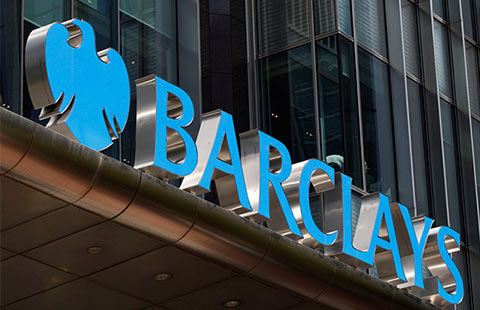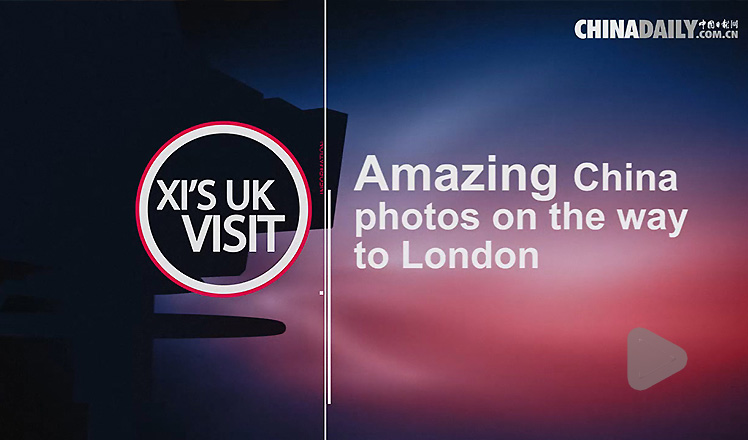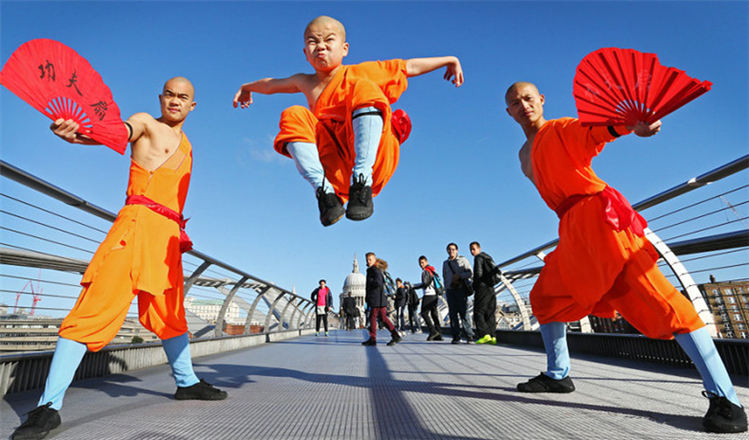Working on positive China-US relations
Updated: 2015-10-02 10:54
By Chen Weihua in Washington(China Daily USA)
|
|||||||||
China past and present
Bader also visited Hong Kong in 1980, when it was still under British rule. He did not set foot on the Chinese mainland until September 1981, when he was assigned to be a political officer at the US embassy in Beijing.
China at that time looked pretty grim to Bader. It was gray, and there were no modern restaurants like today. The hotels were primitive, and the streets had no private cars, but there were millions and millions of bicyclists, all wearing the same Mao outfit.
"There was no commercial life," he said. "Westerners just went to Friendship stores. Chinese were wary of foreigners, so it was very difficult to get to know Chinese outside of the formal Foreign Ministry," Bader recalled.
He described it as a kind of ghetto, Western ghetto, looking through the glass at China, not understanding what was really happening in China.
It was in a way not the China that Bader had read about, as far as liveliness and entrepreneurialism. "You could not see the drive of people, the variety of people; it didn't felt like the historical China you read about," he said.
But when Bader returned to China in 1987 as deputy director of the China Desk at the State Department, he saw a completely different Beijing with street life, cars, restaurants and neon lights.
"People were having a good time," he said.
While Beijing and most Chinese cities are totally different today, Bader said one could see the trajectory of China going on in those years.
Despite the lack of interaction with ordinary Chinese during his two years in Beijing from 1981 to 1983, Bader was able to travel a lot in China. He said things outside Beijing were more lively.
From Harbin in Heilongjiang, Hohhot in Inner Mongolia, Urumqi in Xinjiang in the north to Kunming in Yunnan and Guilin in Guangxi, Bader traveled across China, often on slow trains.
"I loved it. I love travelling. That was very exciting, and frankly made the job worthwhile," he recalled.
When Bader travelled from Taipei to Beijing in 1981, he felt that he was going from First World to Third World. But now traveling between these cities, Bader feels it's just going from one part of China to another part.
Difficult time
When China-US relations suffered a major setback in 1989, Bader described the next year as "basically a profound struggle to try to keep the relationship intact".
He described the work at China Desk as how to keep the continuity and line open, so after a certain period of time, this relationship can be restored. "That was the objective," said Bader, who was involved in forming the US response in those days.
Bader believes many Americans have an arrogant view toward China. "There is a lot of arrogance about the Chinese governance system. They don't understand it, and they bring on their own prejudice and their own views to a situation that they don't understand.
"But it doesn't matter that much, Americans don't get to make decisions anyway," he said.
Bader described then President George H.W. Bush, and his National Security Advisor Brent Scowcroft as committed to a long-term relationship with China. Bush sent Scowcroft and Deputy Secretary of State Lawrence Eagleburger on two secret trips to China in 1989.
The elder Bush headed the US Liaison Office in Beijing from 1973 to 1974 and has a deep understanding of China.
Bader became director of the State Department China Desk from 1995 to 1996 and then deputy assistant secretary of state for East Asian and Pacific Affairs. He moved to the White House National Security Council to be in charge of China affairs from 1997 to 1999.
He became the US ambassador to Namibia from 1999 to 2001 before coming back to serve as assistant US Trade Representative in charge of the Chinese mainland, Taiwan and Hong Kong. His boss was Robert Zoellick.
Bader described China' WTO accession in 2001 not as radical thinking on the part of the US because negotiations had been ongoing since the mid-1980s.
The rationale was the belief that it's important to China's rise, and China will be a part of all major multilateral institutions, of which the WTO has been a principal one in economics and trade.
Bader explained that a WTO that excluded China, increasingly important globally, was not going to be effective.
"We want China to be playing by the same international rules," he said.
While the US rebalance-to-Asia or pivot-to-Asia policy has been met with deep suspicion in China over the past years, Bader said he never used the word "pivot" and did not think of the rebalance in terms of capitalized R. "Pivot was not part of my vocabulary, still not. I reject the term," he said.
In Bader's understanding, President Barack Obama meant it when he talked about welcoming China's rise, because Obama said the same thing in meetings with South Korean and Japanese leaders.
Bader was not especially happy with China's role in the tensions over disputed territory in the South China Sea; he was also critical of the US stance on the Asia Infrastructure Investment Bank (AIIB), calling it "so terrible".
"I hope the administration learned from that lesson," he said.
Contact the writer at chenweihua@chinadailyusa.com.
- Wide support seen for nationwide smoking ban
- Treat or cheat: Chinese media exposes queer therapies on gay people
- Farmland hot spots increase air pollution
- Mentally impaired earn their bread at Nanjing bakery
- China 'will never recklessly resort to the use of force'
- Chinese look yonder for luxury goods
Most Viewed
Editor's Picks

|

|

|

|

|

|
Today's Top News
Tu first Chinese to win Nobel Prize in Medicine
Huntsman says Sino-US relationship needs common goals
Xi pledges $2 billion to help developing countries
Young people from US look forward to Xi's state visit: Survey
US to accept more refugees than planned
Li calls on State-owned firms to tap more global markets
Apple's iOS App Store suffers first major attack
Japan enacts new security laws to overturn postwar pacifism
US Weekly

|

|
















